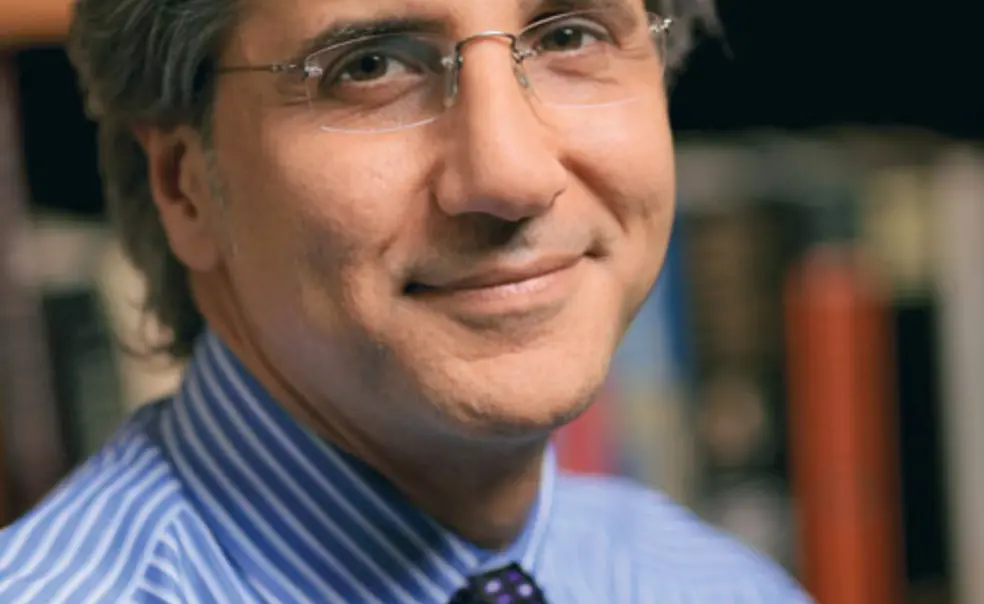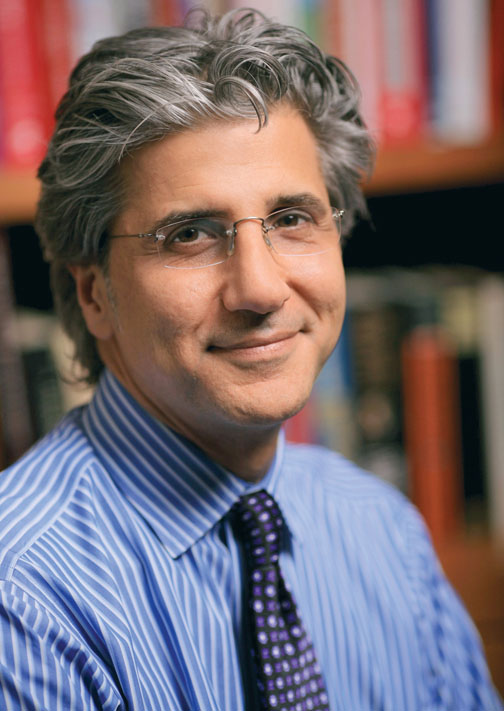A moment with ... John Kolligian
Why is mental health such a priority for UHS?
Students are presenting more openly about their difficulties, about their concerns, and about their struggles. And universities are doing everything that we can to respond to the students’ needs. Through the 1990s there were a number of universities — MIT, NYU, Columbia — that had high-profile suicides that stunned the nation and riveted our gaze on this cohort of students and what they’re struggling with. At Princeton there’s a small number of students who require a lot of attention. We worry about them quite a bit.
How many suicides occur at Princeton?
We’ve lost maybe one student a year. It’s the sort of thing you can’t predict. I feel strongly that we are doing everything that we can in terms of prevention and active interventions to keep self-harm down.
Has the student population changed?
More students have pressing difficulties. There’s a sense of urgency that comes up more on a daily basis, so that many counseling centers across the country, including Princeton, have more time available for same-day appointments and crisis response. When I first started in college mental health in the early 1990s, it seemed like we didn’t need to prepare for that rapid response to the extent that we do now. Overall, the treatment models at counseling centers were focused on developmental issues, phase-of-life problems, and often offered extended cycles of psychotherapy. That model has shifted to one that focuses on the potential for more serious difficulties and involves urgent care and usually brief treatment centered on symptom relief, and referrals to mental-health specialists in the community.
Are you planning any changes in mental-health services?
We want more students to come to UHS. At some point we would like to have satellite offices on campus — or even have a health-care professional and a mental-health professional situated for a few hours in different student centers, residential colleges, or undergraduate colleges. The more palatable we can make our support offerings, the better.
What about your plans for UHS in general?
We need to make sure that all of our interventions are consistent with best practices and existing science. To do that we need to cultivate meaningful collaboration with campus partners, whether that be with the graduate school or with certain academic departments such as the psychology department or the new neuroscience institute.
Are male and female students grappling with different issues?
At elite universities, concerns about self-esteem and worries about the future — who am I going to be and am I going to find meaning? — are pretty common across the sexes. But it is true that there’s a higher percentage of women struggling with body and eating concerns. We’re seeing more and more men with issues about their body as well. There’s one area of special vulnerability for women — around the prevalence of relational violence, sexual harassment, and assault.
Are new issues relating to social development arising?
When I was the counseling center director, we would get together and talk about what are the issues coming up with students of this generation. And we wondered if the increasing sense of globalization and instant communication and the 24-hour news cycle — if all that is taking a toll on the overall stress levels on our young people. We don’t know for sure exactly what that toll is, but that, combined with increasing uncertainty around the economy, is certainly something we worry about. Anecdotally there have been incidents where students have expressed more obvious concerns about their own future and their own place in the world. There also have been a few incidents where students’ parents have lost their jobs. Students will say stress is the major factor getting in the way of their own academic excellence. They tend to take on a lot in terms of academics and extracurriculars. One colleague wrote a book called College of the Overwhelmed — that’s an apt title for what a good number of students struggle with.
Conducted and condensed by Katherine Federici Greenwood













No responses yet